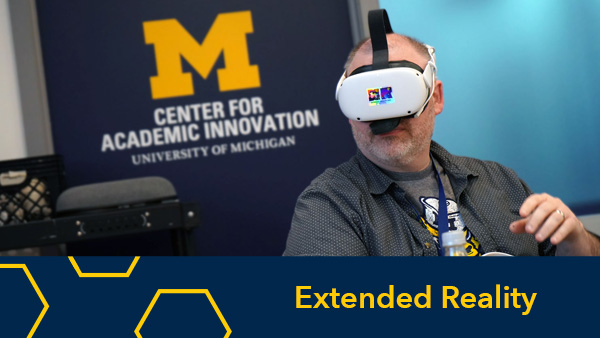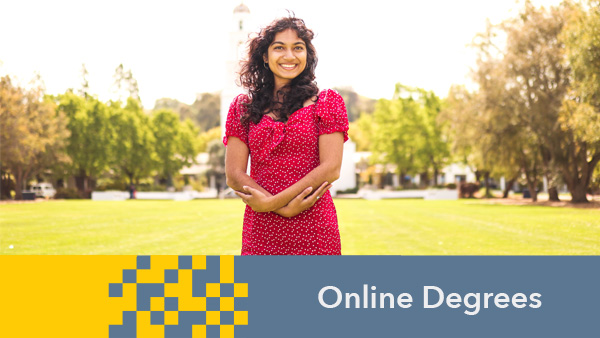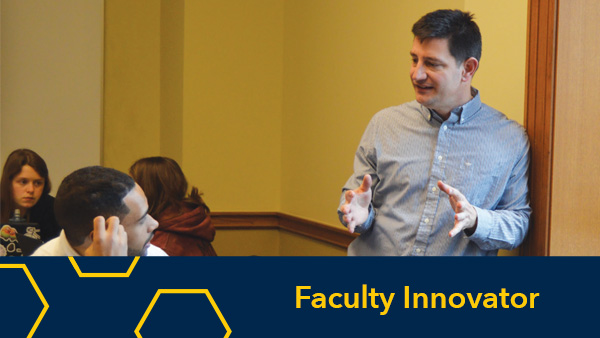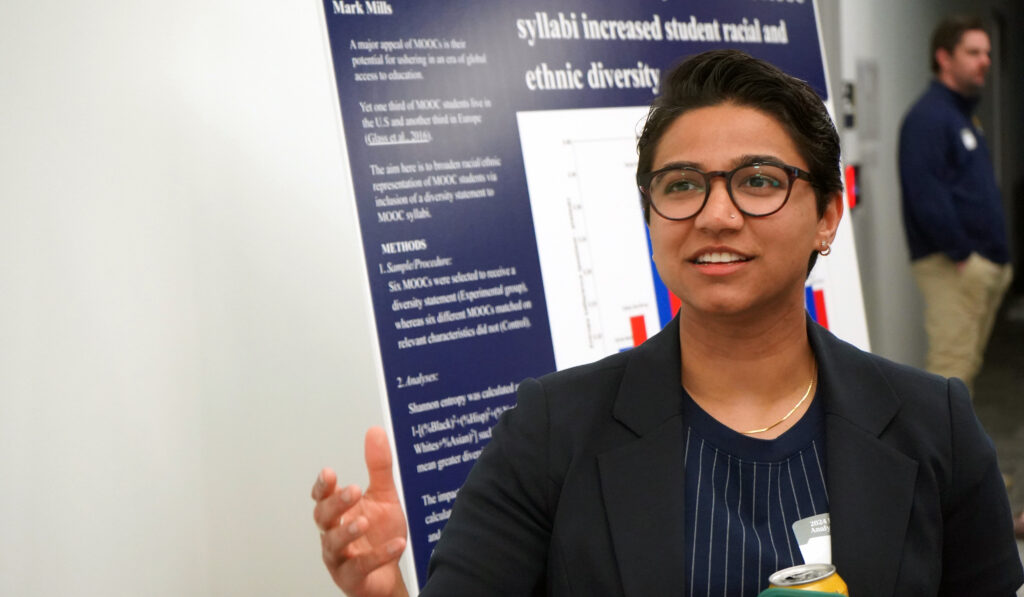
The annual Research & Analytics Showcase spotlights the questions, answers, and the researchers asking important questions about how people learn
Sean Corp, Communications Lead
Researchers across the University of Michigan gathered in a collaborative spirit dedicated to the question required to sustainably innovate in teaching and learning – “What works?”
Successfully addressing that question requires asking other questions, designing experiments, and conducting research. The Center for Academic Innovation’s Research and Analytics Showcase spotlights these efforts and celebrates the researchers committed to advancing the future of higher education.

“Our pursuit is not to chase the novelty of creating a bunch of new things. It is to deeply understand the dynamics of student success across diverse populations and be learner-centered, research-driven, and committed to scalable and sustainable methodologies,” said James DeVaney, associate vice provost of academic innovation and the founding executive director of the center.
In the spirit of that pursuit, more than 80 researchers and supporters attended the showcase’s mix of presentations and poster sessions. The posters explored the efficacy of the center’s online and XR-supported learning experiences, using educational technology to aid in student decision-making and student success, and important challenges in higher education, all within the context of equitable teaching and learning.
The showcase also featured three lightning talks. Robin Fowler, teaching professor in technical communication at Michigan Engineering, discussed peer evaluation in the teamwork support tool Tandem. Fowler, along with Michigan Engineering’s Laura Alford and Stephanie Sheffield, worked with the center to build Tandem, which launched in 2019 and recently received an award for supporting equity in STEM from the Women in Science and Engineering program.
Mark Lindquist, associate professor of landscape architecture at the School for Environment and Sustainability, talked about the potential virtual reality can have on effective education about the impacts of climate change.
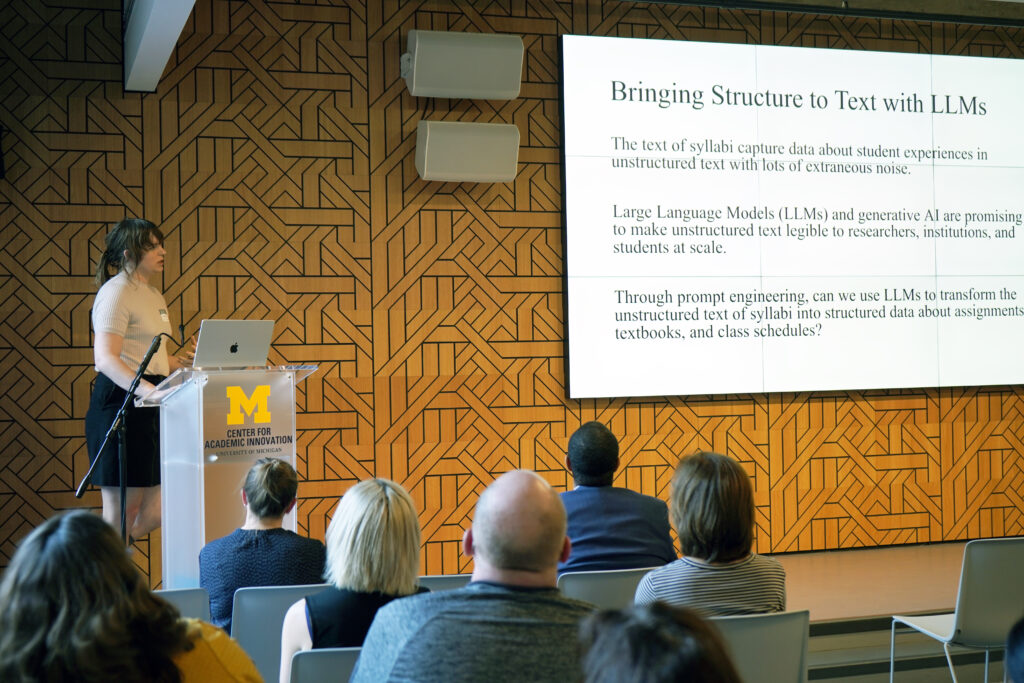
Anna Paulson, a predoctoral research fellow at the Education Policy Initiative at the Ford School of Public Policy, discussed how large language models could be trained to help summarize, spotlight, and index key information in course syllabi.
Three posters received awards for innovation, impact, and design. Field Watts, formerly a graduate student research assistant in the U-M Department of Chemistry and now a research associate in chemistry education at the University of Wisconsin-Milwaukee, won the Most Innovative Topic award for using supervised and unsupervised machine learning techniques together to provide insight into organic chemistry students’ mechanistic reasoning.
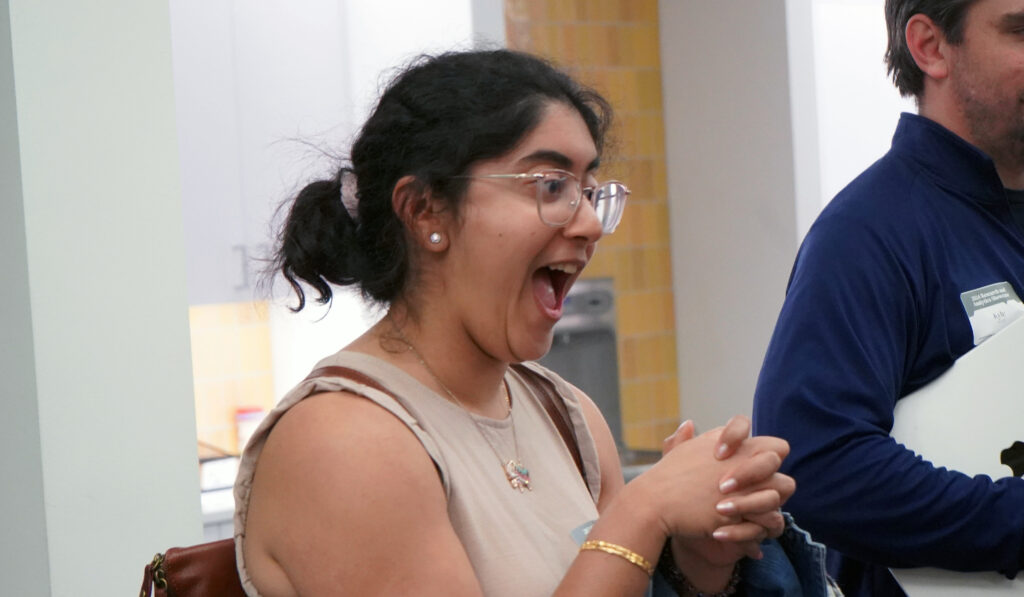
Nita Tarchinski, SEISMIC Collaboration Project Manager in LSA Undergraduate Education, won the Most Potential Impact on Higher Education award for using STEM equity learning communities in parallel across collaborating institutions to facilitate action for equity.
Xiaping Li, a graduate student research assistant in engineering education research at Michigan Engineering, won the Best Overall Better Poster award, which is a framework for better poster scientific poster design. Li’s work examined the relationship between students’ demographics and peer assessments of teamwork.
DeVaney said the event is a testament to the fantastic research happening at the university and the center’s role in collaborating on research projects, leveraging its educational technology, and bringing people together around a common purpose.
“In our 10-year history, we’ve incubated more than 400 projects and worked with over 375 faculty innovators across campus. To do that work really well, each initiative at CAI is informed by research that ensures efficacy, accessibility, and relevance. It is this dedication that gives us our edge.”
